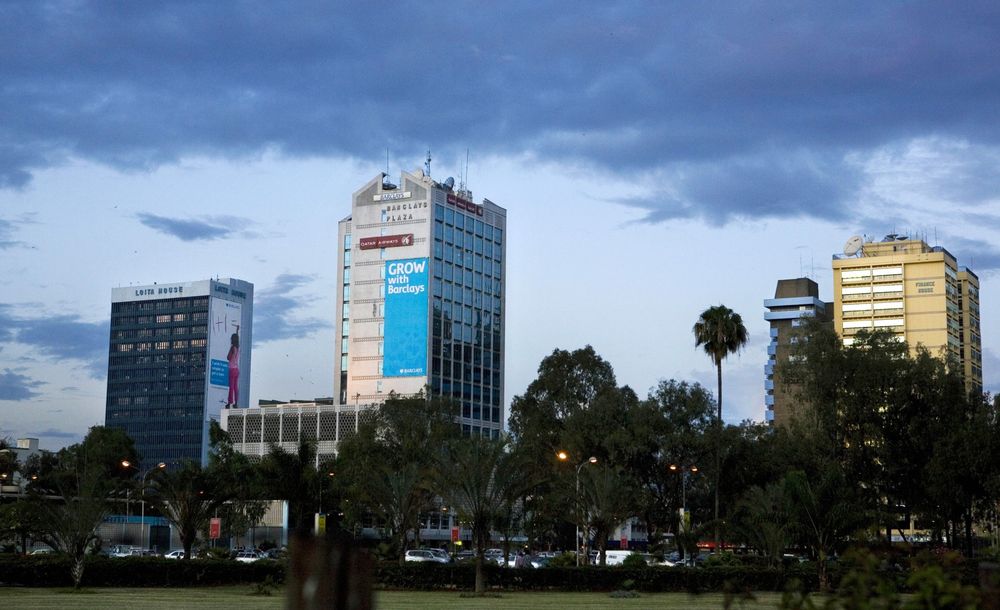- Nigeria Has N1tn Financing Gap Yearly ― BoI
The Chief Executive Officer of the Bank of Industry, Mr Olukayode Pitan, has said there exists a financing gap of about N1tn in the country every year.
Pitan, while speaking at the Economic and Business Conference organised by Rand Merchant Bank in Lagos on Tuesday, noted that the BoI had invested over N20bn in the creative industry.
The conference was themed: ‘Unlocking the real sector growth to drive sustainable economic development.’
According to Pitan , BoI is the biggest financier of the creative industry.
While calling on other banks to partner key players in various sectors of the economy, Pitan said most companies were thronging to the BoI to borrow money because commercial banks were making it hard for businesses to thrive due to their over 20 per cent (sometimes 30 per cent) interest rate on loans.
He said, “People are coming to the BoI to borrow because it makes more sense to them. The BoI gives loans at 10 per cent interest rate; if we have an inflation of 11 per cent and loans are given out at 10 per cent, it means that the lending has been subsidised.
“The country has about N1tn funding gap every year. We want to help, but we have challenges with coming up with the funds people want. That is why we are calling on other banks for support.”
The Country Manager, International Finance Corporation, Nigeria, Eme Lore, said the banking sector was not playing its expected role in the affairs of the economy.
She said there was a need to ensure more access to affordable funding by Micro, Small and Medium-scale Enterprises.
Lore stated that the IFC had partnered the government to launch new initiatives that would enable SMEs to use ideas as collateral for loans.
She added that legislation had also been made on credit bureaux to ensure that a lot of credit information was accessible.
She said, “Achieving real sector growth is a process; it will not happen like that. We need to introduce more initiatives to support real sector growth and attract foreign investment into the country.
“Investors have a lot of space to invest in Nigeria but are looking for the right environment. We need to work on our exchange rate environment, power sector reform agenda and the petroleum subsidy.”
According to Lore, a lot of people are taking advantage of the petroleum subsidy and the real people are not benefitting from it.
She stated that tackling all the items would increase foreign direct investment, adding that “We do not collect enough revenue in Nigeria as 60 per cent of oil revenue is paid out as interest on borrowings.”
Lore said those were the things long-term investors looked out for.
The Chief Executive Officer, RMB Nigeria, Mr Michael Larbie, said it was important for banks to understand the various sectors and clients properly.
He said, “At RMB, we try to take time to understand our clients, their needs and their growth trajectories. We need a lot more financing and lesser costs of production. We must find a way to generate more power so that the costs of manufacturing can reduce.”
The Chairman, Africa Industries Group, Mr Raj Gupta, said banks needed to get involved in understanding people’s businesses and getting experts to do analyses for them if necessary.

 Billionaire Watch3 weeks ago
Billionaire Watch3 weeks ago
 Startups4 weeks ago
Startups4 weeks ago
 News4 weeks ago
News4 weeks ago
 News4 weeks ago
News4 weeks ago
 Bitcoin4 weeks ago
Bitcoin4 weeks ago
 Naira4 weeks ago
Naira4 weeks ago
 Forex3 weeks ago
Forex3 weeks ago
 Treasury Bills4 weeks ago
Treasury Bills4 weeks ago

























